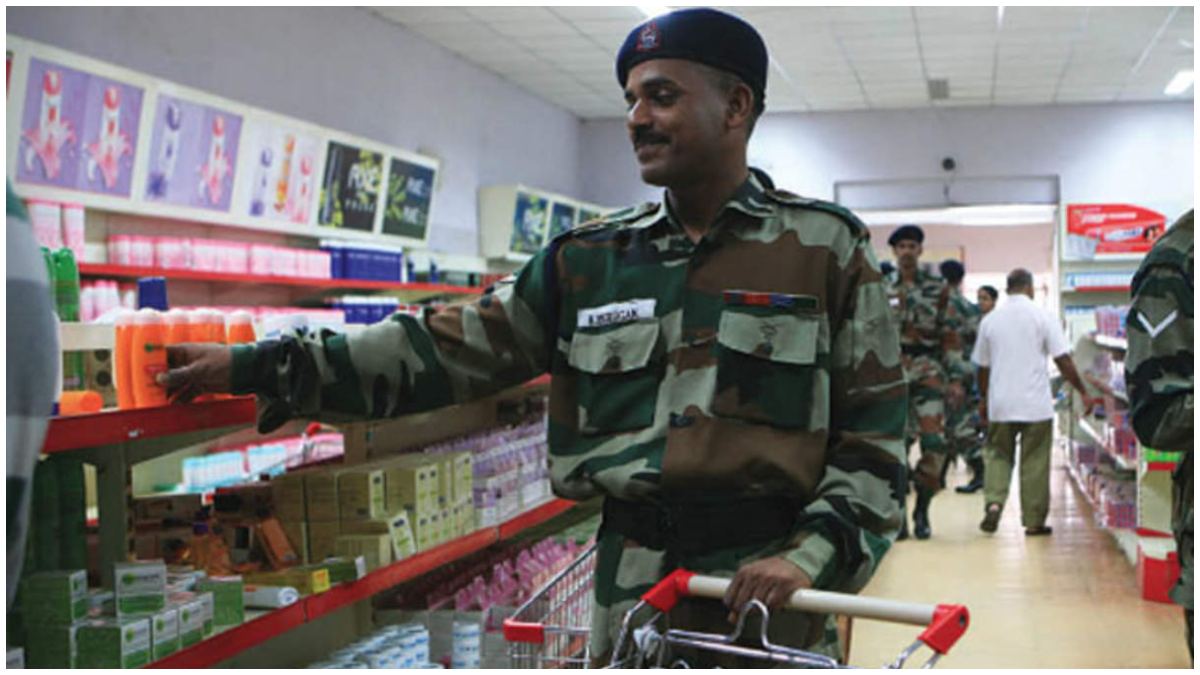A four-year ban on selling imported items in Army canteens or Canteen Stores Department (CSD) outlets has greatly boosted the ‘Make in India’ campaign, leading to a rise in local manufacturing. This ban started in October 2020 and aimed to support the ‘Atmanirbhar Bharat Abhiyan’ (self-reliant India movement), which encourages making products in India rather than importing them.
255 Items Reintroduced In Canteens
The Defence Ministry’s decision to stop selling 431 imported items in CSD outlets has led to some impressive results. Officials say that this move pushed many companies to start manufacturing in India. As a result, 255 of the banned items have been brought back to CSD outlets, which serve soldiers, veterans, and their families. An official mentioned, ‘The shift to manufacturing in India has been successful. We’ve managed to reintroduce 255 of the 421 banned items in CSD.’
With the ban lifted on many items, the CSD catalog now features a wide range of products. This includes cars, two-wheelers, liquor, home appliances, food, toiletries, luggage, watches, shoes, stationery, and more. Some well-known brands are back, offering television sets, refrigerators, cosmetics, sports shoes, sunglasses, and table fans. However, the names of the companies that have started making these products in India have not been shared.
Enhancing Troop Conditions And Food Quality
The army is also working to improve the conditions and facilities for its troops. This includes providing high-quality food, using new technology, and making better use of resources to stay combat-ready. The army has teamed up with the Food Safety and Standards Authority of India (FSSAI) to ensure the quality of the food provided to soldiers.
Boosting Self-Reliance With Import Ban
The import ban was part of a bigger plan to make India more self-reliant. Besides stopping the sale of imported goods, the government has introduced other measures to boost local defense production. These include gradual bans on importing various weapons and parts. The government has also set aside a special budget for buying locally made military equipment, increased foreign direct investment (FDI) from 49% to 74%, and made it easier for businesses to operate in India.
Improving Logistics And Green Energy
New developments include setting up joint logistics centers to improve how logistics are managed across the armed services. This helps use resources more effectively. The army has also moved from using animals for transport to trucks and all-terrain vehicles, which improves transportation in tough terrains.
In an effort to be more eco-friendly, the army is working with the National Thermal Power Corporation to build a green hydrogen plant. This plant will help power the Chushul garrison and buses in Leh, showing the army’s commitment to green energy.
Also Read: Bhubaneswar Man Arrested For Posing As Police Inspector And Deceiving Woman In Fake Marriage Scam













